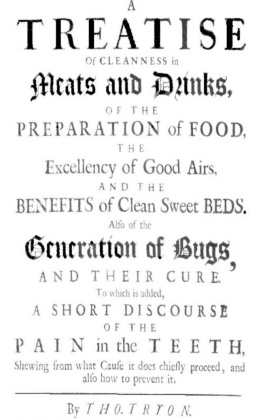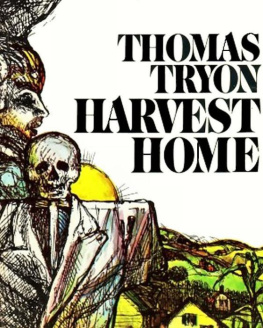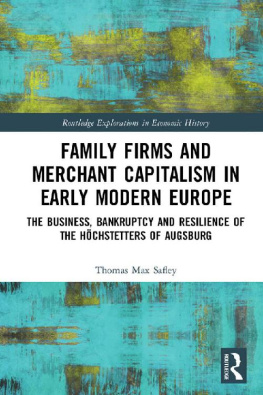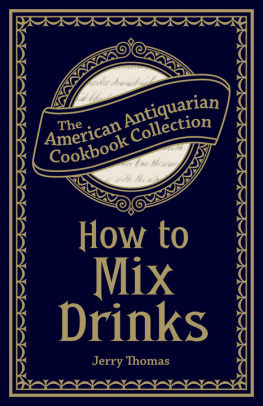Thomas Tryon - A Treatise of Cleanness in Meats and Drinks, Airs, and the Benefits of Clean
Here you can read online Thomas Tryon - A Treatise of Cleanness in Meats and Drinks, Airs, and the Benefits of Clean full text of the book (entire story) in english for free. Download pdf and epub, get meaning, cover and reviews about this ebook. year: 2016, publisher: anboco, genre: Science. Description of the work, (preface) as well as reviews are available. Best literature library LitArk.com created for fans of good reading and offers a wide selection of genres:
Romance novel
Science fiction
Adventure
Detective
Science
History
Home and family
Prose
Art
Politics
Computer
Non-fiction
Religion
Business
Children
Humor
Choose a favorite category and find really read worthwhile books. Enjoy immersion in the world of imagination, feel the emotions of the characters or learn something new for yourself, make an fascinating discovery.
- Book:A Treatise of Cleanness in Meats and Drinks, Airs, and the Benefits of Clean
- Author:
- Publisher:anboco
- Genre:
- Year:2016
- Rating:5 / 5
- Favourites:Add to favourites
- Your mark:
- 100
- 1
- 2
- 3
- 4
- 5
A Treatise of Cleanness in Meats and Drinks, Airs, and the Benefits of Clean: summary, description and annotation
We offer to read an annotation, description, summary or preface (depends on what the author of the book "A Treatise of Cleanness in Meats and Drinks, Airs, and the Benefits of Clean" wrote himself). If you haven't found the necessary information about the book — write in the comments, we will try to find it.
A Treatise of Cleanness in Meats and Drinks, Airs, and the Benefits of Clean — read online for free the complete book (whole text) full work
Below is the text of the book, divided by pages. System saving the place of the last page read, allows you to conveniently read the book "A Treatise of Cleanness in Meats and Drinks, Airs, and the Benefits of Clean" online for free, without having to search again every time where you left off. Put a bookmark, and you can go to the page where you finished reading at any time.
Font size:
Interval:
Bookmark:
THE
Excellency of Good Airs,
AND THE
BENEFITS of Clean Sweet BEDS.
Also of the
Generation of Bugs,
AND THEIR CURE.
To which is added,
A SHORT DISCOURSE
OF THE
PAIN in the TEETH ,
Shewing from what Cause it does chiefly proceed, and
also how to prevent it.
By T H O. T R Y O N .
1682.
Of Cleanness in Meats and Drinks. Of the Excellency of Good Airs, and of the contrary. Of the Benefits of Clean Sweet Beds, and of the Inconveniences of Feather-Beds. What Matter it is that does occasion the Generation of that pernicious Vermin called Bugs, that so many Hundreds in this City, and other great Towns, are infested with; more especially in Holland, Italy, New-England, Barbadoes, Jamaica, and in many other Places. That they are never bred but where Beds are: And that their being generated from Wooden Bedsteads, or from Hogs Hair in the Plaisterings of the Walls, is a meer Story, promoted inconsiderately by Persons mistaken in the Productions of Nature: Also, How all such Persons as are troubled with them may be cured without using Medicines, and Directions how to avoid ever having them again.
What is more profitable for all Lovers of Health and Wisdom, than Food that is Radically Clean? And as Bread hath deservedly the first Place, together with Herbs, and various sorts of excellent Fruits; so the next is Milk, which of it self is a brave, mild, and most friendly Food to Nature, very fit and profitable for all Ages and Complexions; and if it do not agree with some People, it is because their Stomachs are made sharp and soured by superfluity of dainty Food, and the continual use of strong Drink. Also Milk being altered, it makes many sorts of wholesom healthy Food. Next to these, are various sorts of Flesh, which being killed in their proper Times and Seasons, and when they are free from their Uncleannesses, Surfeits, and other Inconveniences, which most Beasts are subject to; and if care be taken also that they be well and moderately seasoned with Salt, and boyled in plenty of River or Spring-water (which is the best of all Waters except Rain-water) they become wholesom Nourishment. For, River-water hath the advantage of running through various sorts of Earth, by which it sucks into it self a fat, oylie, and saline Quality, which the Surface of the Earth does plentifully afford; which also is the cause of all Vegitation, and the lovely Green Colour which all Vegitables are cloth'd with, does arise from this Saline Quality. For these Reasons, River-water will Brew, Boil, and Wash, and it is more profitable in all Uses in Houswifery, than Spring or Pump-water, and far wholesomer for Men and Beasts to drink. Also your Vessel in which your Food is boyled, ought to be uncovered all the time it boyls; for if the Air have not its free egress and regress, the pure Spirits in the Food become as it were suffocated, and then the Food so prepared becomes dull and heavy; for the Air is the Essential Life of the Spirit; and all Food that hath not plenty of Water, and the free Influences of the Air, in its Preparation, does certainly lose its natural Colour, with the pure Smell and Taste: for if those three Qualities be not preserved in all Preparations of Food, then the genuine Vertue and lively Tinctures are in part lost. The same is to be observed in all Physical Operations. And if the above-mentioned Order be not observed, then the Food is not so pleasant to the Pallate, nor so easie of Concoction; it lies heavy in the Stomach, dulling and stupifying the Senses; it generates a gross Nourishment, and bad Blood, whence does proceed many Diseases: Whereas if the above-mentioned Rules be observed, and your Fire quick, that your Food do not stand still, or cease from boyling, till it be sufficiently done, the Effects are contrary. It is also much better the Food should be a little under-prepared, than too much: For when the gross phlegmatick Body of any Food is by Preparation digested, then presently the lively spirituous Quality is set at liberty, whence does proceed a most pleasant Smell and Taste; which pleasant Quality, before the Preparation, lay hid or captivated in the Body of Phlegm; but so soon as this phlegmatick Body is in part destroyed, the Spirit becomes Volatile; and then, if the Preparation be continued, those pure Spirits do either become suffocated, or evaporate; and then the sweet Balsamick Body turns as it were sour. For these Reasons, all sorts of Food, either over prepared, or twice prepared, are of a strong fulsom taste and smell; as all Meats heat again, and also Pottages, and all such things, do obstruct Nature, and generate many Diseases. But if the forementioned Rules be observed, the Food so prepared is not only more pleasant to the Pallate, but far lighter of Digestion, and breeds better Blood. For that Universal Distemper (the Scurvy ) which reigns so much in England , is chiefly caused by Food ill prepared, and the eating of too much Flesh, and Fat things, especially in the improper Seasons of the Year, viz. from July to the last of November . In this Season the Sun, which is the true Life and Power of all things, declines; and all sorts of Herbage, which is the Food of all Beasts that are generally eaten, doth the same: The Grass all this Season is fraught with a gross phlegmatick Matter; besides, it is a fainty hot time; the Air, which is the Cherishing Life of all things, is more gross, and full of Humidity, than all other times of the Year; the Spirits of all sorts of Creatures are also weak, and on any Accidents are quickly wounded, or evaporated, more especially those Beasts that come from remote Parts to great Cities. Besides, it is then the principal time of their Generating, which renders them unclean. Are not the People ten-fold as sickly in this Season, and double the number die, than they do at other times? Also you may observe, That the Rots amongst Sheep, and Murrains that attend other Beasts, are all or most of them in this Season: Therefore all sorts of People ought to be more careful of their Health, both in Exercises, Meats, and Drink, that they do not exceed either in quantity, nor eat things that are improper in quality. This is the time that all Shepherds, and also those that are Drivers of Horses, and indeed all that have the Government of Cattel, ought to have and use double the prudence in the management of them, than at other Seasons of the Year, as I have more largely discoursed in a small Treatise, which I intend to put forth, if I am permitted, of the Preservation of Sheep from the Rot, and Horses from Surfeits.
There are three Marks by which every one may know whether the Flesh be good. The first is by its pure White and brisk Red Colour, when Raw. The second is by its continuing its firmness, being plump or swelled when boyled, having a brisk and lively Taste, and that after eating it feels easie and pleasant in the Stomach. The third is, by its taking Salt well; for if your Flesh be free from Heat and Surfeits, and not over-fed, which charges the Body with gross Phlegm; as also if it be not kept longer after it is killed (as indeed it ought not) than it be thought to be cold, before it is salted; all such Flesh will take Salt greedily, and it will not only keep longer from Putrifaction, but it will eat much sweeter, and breed better Nourishment. For, if any sort of Cattel be over-fed, surfeited, or any other Inconveniency attends them, and they be killed before they have recovered themselves of those Injuries; or if it be in August , September , or October , this Flesh will not take Salt so well as the former, neither will the Salt preserve it half so long from Corruption. Also, as it is before-mentioned, if Flesh be kept too long after it be killed, such Flesh will not receive Salt into it, as other will, which is salted as soon as it is cold: For by keeping it does certainly lose its pure Spirituous Quality, so that the Body becomes heavy, gross, and dull. Does not the Life and Spirits of most sorts of Food waste and evaporate by keeping, if there be not a proper way of Preservation used? If Flesh, by any Inconveniencies, have lost its pure lively Spirits and Vertue, Salt then hath no power to preserve such Flesh from Putrifaction: For Salt cannot preserve the Body from Corruption, but by vertue of the pure subtile Spirits, which are a pleasant Habitation for the Salt to incorporate it self with: For Salt will not preserve Flesh from Putrifaction, any longer than the Vertue and Power of the Spirit does continue, as it does appear by all salted Flesh and Fish: For through length of time the Spirits become either suffocated, or evaporated, and then it presently falls into Putrifaction: And yet this same Flesh does still continue Salt; for Salt does not destroy and purge the Flesh from its Corruption, but incorporates it self with the Essential Spirits, and those two do as it were tie or hold the corrupt Part Captive, till the Spirit and Life of the Flesh be spent or wasted, and then the Flesh falls into Putrifaction, which cannot be recovered, eitheir by Salting, or any other Art, to its first state: But if the Salt had purged or destroyed the Humidity and gross part, then there would have been no Room nor Matter for Putrifaction, and then it would have continued firm and sound, as many other things do, which are freed from that gross humid Matter from which Putrifaction does proceed. Therefore Flesh is naturally the most unclean of all Food, it being of a gross phlegmatick Nature; and if Care be not taken, and Order and Temperance observed in the Eater, it generates abundance of crude and noxious Humours.
Next pageFont size:
Interval:
Bookmark:
Similar books «A Treatise of Cleanness in Meats and Drinks, Airs, and the Benefits of Clean»
Look at similar books to A Treatise of Cleanness in Meats and Drinks, Airs, and the Benefits of Clean. We have selected literature similar in name and meaning in the hope of providing readers with more options to find new, interesting, not yet read works.
Discussion, reviews of the book A Treatise of Cleanness in Meats and Drinks, Airs, and the Benefits of Clean and just readers' own opinions. Leave your comments, write what you think about the work, its meaning or the main characters. Specify what exactly you liked and what you didn't like, and why you think so.









